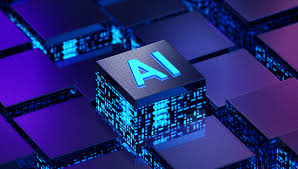Artificial Intelligence (AI) is revolutionizing various industries and energy management is not an one of them. As the world grapples with growing energy demand and environmental issues, artificial intelligenceis becoming a game changer in optimizing resource use and enhancing energy efficiency.
What is AI in Energy Management?
artificial intelligence (umela inteligence) refers to the simulation of human intelligence in machines that are designed to think and learn. In the field of energy management, AI is the use of machines and algorithms to analyse massive amounts of data, make predictions, and automate decision-making processes. These technologies help in optimizing the energy production, distribution and consumption, making the systems more efficient and responsive.
Key Applications of AI in Energy Management
Predictive analytics: AI machines analyze historic data as well as inputs from real-time to predict energy demand and supply. This helps in predicting peak times for usage and adjusting energy production to meet the needs, decreasing waste and increasing reliability. In particular, AI can anticipate high demand for energy and make sure that the grids are set to cope with the demand.
Smart Grids: AI enhances the functionality of smart grids by enhancing the distribution of electricity. With real-time monitoring and analysis, AI can detect faults as well as balance loads and regulate energy flows more effectively. This improves grid stability and reduced energy losses.
Energie Efficiency AI algorithmic algorithms optimise energy consumption in buildings and industrial processes. By studying patterns of usage and environmental conditions, AI systems can alter heating, cooling, as well as lighting systems to cut down on the amount of energy consumed without sacrificing the comfort or efficiency. For instance smart thermostats make use of AI to recognize the preferences of users and adjust temperatures for energy savings.
Renewable Energy Integration: AI helps to integrate renewable energy sources such as wind and solar into the grid. It predicts the weather conditions to maximize energy production from these sources, and it also helps manage their fluctuation. AI helps with the effective storage of and distribution for renewable power to ensure an uninterrupted supply.
Demand Response AI assists demand-response programs in anticipating and managing shifts in energy usage. It aids in encouraging consumers to reduce or shift their energy consumption during peak periods, thereby stabilizing the grid and reducing the requirement for energy generation.
Challenges and Future Prospects
Despite its benefits, the implementation in the use of AI to manage energy is not without issues like data privacy issues, the high cost of implementation, and the need for highly skilled workers. Additionally the integration of AI into existing infrastructures requires meticulous planning and adaption.
In the future, advances in AI technology will bring even more advancements for energy-management. Improved algorithms, greater access to data, as well as more sophisticated sensors will drive further efficiency and advancements. AI’s role in the creation of eco-friendly energy alternatives is set to increase and will become a key component in the quest for greener and more green energy system.
In summary, AI is revolutionizing energy management by optimizing the use of resources as well as improving efficiency and integrating renewable energy sources. As technology develops its influence on the energy sector will likely become even more significant, leading to smarter, greener energy solutions.


